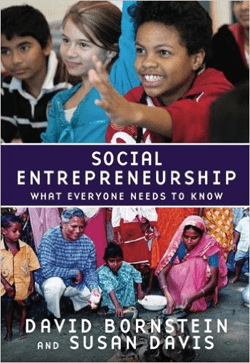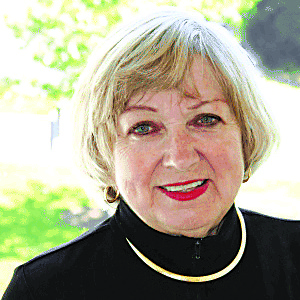In the past 20 years, the concept of entrepreneurship has been hijacked. The conventional street definition of entrepreneurship incorrectly defines anyone with a business card, smartphone and a homemade website as an entrepreneur. Media hype, publishers of magazines or textbooks and franchisors have embellished and spread the hype to “wanna-be” entrepreneurs.
Although there are many hard working people engaged in managing or owning business ventures or not-for-profits, the majority are owners and or managers but not entrepreneurs. Entrepreneurship goes beyond the hard work of running a business or nonprofit.
 The true entrepreneur is an innovator and change agent. The true entrepreneur sees opportunities and what needs to be done or changed. Entrepreneurs change systems and processes and social entrepreneurs change social order and norms. According to David Bornstein and Susan Davis, authors of “Social Entrepreneurship: What Everyone Needs to Know,” “Social entrepreneurs initiate and lead change processes that are … growth oriented and impact-focused. They create new configurations of people and coordinate their efforts to attack problems more successfully than before.”
The true entrepreneur is an innovator and change agent. The true entrepreneur sees opportunities and what needs to be done or changed. Entrepreneurs change systems and processes and social entrepreneurs change social order and norms. According to David Bornstein and Susan Davis, authors of “Social Entrepreneurship: What Everyone Needs to Know,” “Social entrepreneurs initiate and lead change processes that are … growth oriented and impact-focused. They create new configurations of people and coordinate their efforts to attack problems more successfully than before.”
Social entrepreneurs are revolutionary change agents. They work toward systemic and far-reaching change in areas such as education, improving financial and political systems, increasing farming productivity, eradicating poverty, sanitation and keeping our environment sustainable. According to Bornstein and Davis, some social entrepreneurial activities may still be illegal in countries such as North Korea, Myanmar, Iran and Syria because they are “destabilizing forces … wherever they crop up, they can pose serious threats to the status quo.”
“Social Entrepreneurship: What Everyone Needs to Know” is a compact, well-constructed read, full of useful insights and information. It inspired me to learn about Bill Drayton’s mission to make the world a better place. Drayton is the founder of Ashoka, (named after the socially conscious ruler Ashoka who ruled parts of what is now India more than 23 centuries ago) a global organization launched and headquartered in Arlington, Virginia.
Drayton’s traits epitomize the strong determination and social conscience of a social entrepreneur. He has degrees in business and management from Yale and Harvard, which provide the expertise and conceptual skills to assess, choose, deliberate and implement focused action plans. His background is varied and includes teaching at Stanford Business School, consulting for McKinsey and as an administrator for the EPA during the Carter administration where he modified and improved efficiencies in compliance standards resulting in decreasing costs to industry.
Drayton’s Ashoka had startup growing pains. After five years as a startup, its first project was to support a school teacher in Bombay who changed the curriculum from rote learning to participative learning. The teacher’s innovations included real-world applications for problem solving and critical thinking. These became foundational building blocks and multipliers for social entrepreneurship in the region’s educational system. Today Ashoka is a success. It models good practices for foundations and organizations supporting social projects around the world.
Bornstein and Davis’ book gives many examples of who deserves the social entrepreneur label. Some familiar names include Gandhi, who engineered an effective social movement to gain India’s independence from Great Britain, Martin Luther King Jr., the U.S. civil rights leader, and Florence Nightingale, the founder of modern nursing professions. Many other examples of people who improved their communities and regions make this book a pleasure to read.
I recommend this book for its concise overview and up-beat tone. It inspires and gives practical tips on how to help change the world to make it a better and more just place. It gives a clear definition of what social entrepreneurship is and provides useful examples.
Lucia Worthington teaches business and management at Clark College and is the faculty advisor to the Business Club which focuses on social entrepreneurship. To recommend a book for review, email bookreviews@vbjusa.com.

